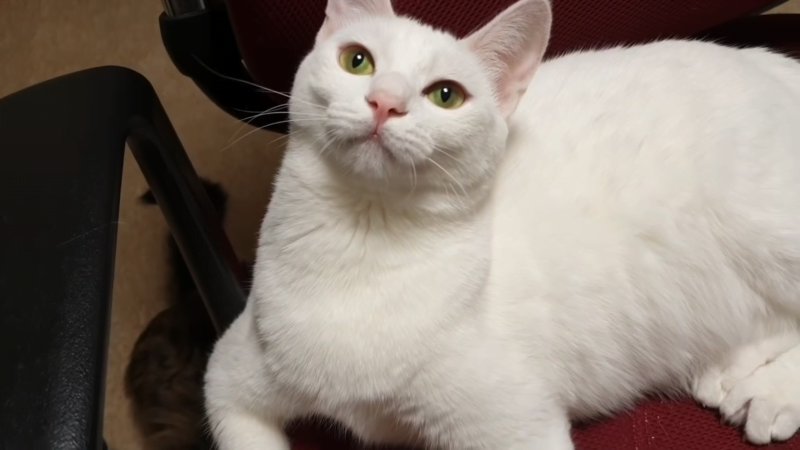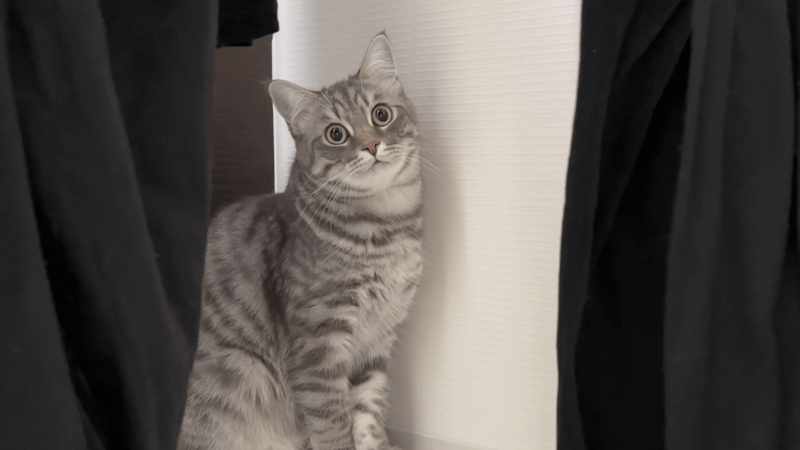No products in the cart.
CBD for cats’ joint pain has emerged as a potential solution for providing relief to our feline companions. As pet owners, we are always looking for ways to alleviate our cats’ discomfort, and CBD offers a natural approach to addressing joint pain. While scientific studies specific to cats are limited, there is growing anecdotal evidence of CBD’s effectiveness.
In this blog, we will explore the potential benefits of CBD for cats with joint pain, what causes cat joint pain, how to help cats with joint pain, and other strategies to help improve our cats’ quality of life.
What Is CBD for Cats Joint Pain?
CBD for feline joint pain involves utilizing CBD products specially designed for cats to relieve discomfort in their joints. CBD, a natural substance extracted from hemp plants, interacts with the body’s endocannabinoid system, which affects pain perception and inflammation. These cat-specific CBD products for joint pain are readily accessible in different formats, including oils, treats, or creams that can be applied to the affected areas.

Can CBD Effectively Reduce Joint Pain in Cats?
The effectiveness of CBD in reducing joint pain in cats is still being researched, and scientific studies specific to cats are limited. Anecdotal evidence, however, along with some early research, points to CBD’s potential for helping cats with joint discomfort. CBD’s anti-inflammatory properties are believed to help reduce pain and inflammation associated with joint conditions. It’s important to consult with a veterinarian to get personalized advice and guidance on using CBD for your cat’s joint pain.
The Safety of CBD for Cats
CBD is generally deemed safe for cats when given in proper amounts. Nonetheless, it is crucial to utilize CBD products specifically designed for animals and adhere to the dosage instructions provided by a veterinarian. Contrary to marijuana, which contains tetrahydrocannabinol (THC), a psychoactive substance that is hazardous to cats, hemp-derived CBD contains only minute quantities of THC. Reputable CBD products undergo rigorous testing to ensure they are free from any harmful impurities or contaminants.
CBD Dosage for Felines
Knowing the right CBD dosage for cats with joint pain is essential for maximizing the potential benefits and ensuring their safety. It’s crucial to remember that there isn’t a single dosage that works for all cats. The optimal CBD dosage for your cat depends on various factors, including their weight, overall health, and the specific product being used.
To determine the appropriate dosage, it is strongly recommended to consult with a veterinarian experienced in CBD use for pets. They will consider your cat’s individual needs and may start with a low dose, gradually increasing it if necessary. Veterinarians can provide specific recommendations based on their knowledge and understanding of CBD and cats.
It’s crucial to strictly follow the dosing instructions provided by the veterinarian or the product manufacturer. Giving too much CBD to your cat can result in unwanted side effects, while giving too little may not provide the desired relief. Regular monitoring of your cat’s response to CBD is essential to find the optimal dosage for their specific condition.
Potential Side Effects of CBD
Although cats normally tolerate CBD well, there is a chance that it could have some negative effects. CBD can have negative effects on cats, just like any other chemical. However, it’s important to note that side effects from CBD in cats are typically mild and transient. Some potential side effects that have been reported include:
- Mild drowsiness or sedation: Cats may appear more relaxed or sleepy after consuming CBD. This effect is usually temporary and tends to diminish with regular use.
- Gastrointestinal upset: Some cats may experience mild digestive issues such as diarrhea or changes in appetite. These effects are generally mild and resolve on their own.
- Changes in behavior: CBD can affect cats’ behavior in different ways. While the majority of cats have beneficial behavioral changes, such as decreased anxiety or elevated mood, others could see a modest shift in how they interact with people or an increase in activity levels.
Causes of Cat Joint Pain
Cat joint pain can be caused by various factors, including:
- Aging: Older cats are more prone to joint problems, including osteoarthritis, a frequent source of joint pain.
- Obesity: Excess weight puts additional stress on the joints, leading to inflammation and discomfort.
- Trauma or injury: Accidents, falls, or physical trauma can cause joint damage and subsequent pain.
- Genetic predisposition: Certain cat breeds are more susceptible to certain joint conditions.
- Infections or diseases: Infectious diseases or conditions such as feline infectious peritonitis (FIP) or immune-mediated joint diseases can lead to joint pain.
- Developmental abnormalities: Conditions like hip dysplasia or luxating patella can cause joint pain in cats.
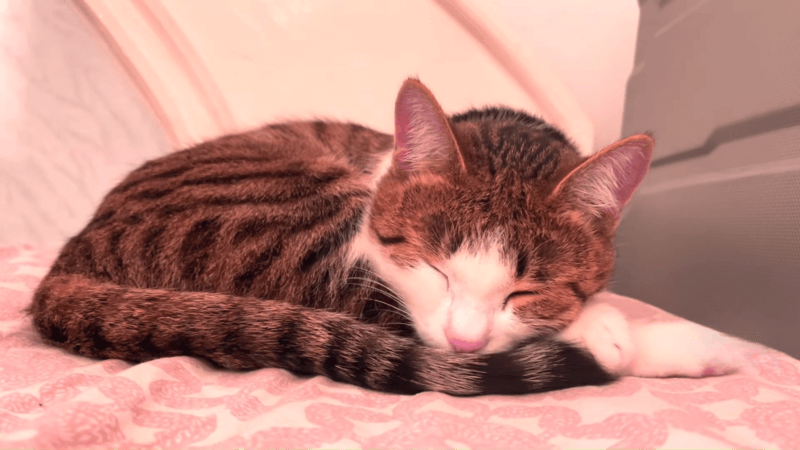
Symptoms of Joint Pain in Cats
Cats may not exhibit obvious signs of joint pain, as they are known to hide discomfort. However, some common symptoms that may indicate joint pain in cats include:
- Limping or favoring a particular leg
- Stiffness or reluctance to move
- Reduced activity level or decreased interest in usual activities
- Difficulty jumping, climbing stairs, or getting up and down
- Changes in grooming behavior (e.g., decreased grooming or excessive licking of joints)
- Vocalization or signs of pain when touched or handled
- Swelling or visible inflammation around the joints
How Does Joint Pain Affect a Cat’s Daily Life?
Joint pain can significantly impact a cat’s daily life and overall well-being. Their range of motion may be limited, their ability to perform daily duties may be impaired, and their quality of life may suffer. Cats with joint pain may experience the following difficulties:
- Reduced mobility: Joint pain can make it challenging for cats to move comfortably, jump, climb, or perform typical feline behaviors.
- Decreased activity: Cats in pain may become less active, preferring to rest rather than engage in play or exploration.
- Behavioral changes: Cats experiencing joint pain may exhibit changes in behavior, such as increased irritability, withdrawal, or decreased social interaction.
- Reduced grooming: Painful joints may discourage cats from grooming themselves adequately, resulting in a scruffy appearance and potential skin problems.
- The decline in overall well-being: Cats with chronic joint pain may have decreased appetites, lose weight, and have a general decline in their physical and mental health.
What Can I Give My Cat for Joint Pain?
There are various options to take into account while providing your cat with joint pain medication. To be sure a treatment or drug is secure and suitable for your cat’s particular condition, you should speak with a vet before using it. Here are some potential options that your veterinarian may recommend:
- Prescription Medications: Non-steroidal anti-inflammatory medications (NSAIDs) designed specifically for cats may be prescribed by veterinarians to treat joint discomfort and inflammation. These medications require a prescription and should only be given under veterinary supervision due to potential side effects.
- Joint Supplements: Some joint supplements, such as glucosamine and chondroitin, may help cats’ joints stay healthy and reduce inflammation. There are several different formats available for these supplements, including liquid formulations and chewable nibbles.
- Physical Therapy: Your veterinarian may recommend specific exercises or physical therapy techniques to improve your cat’s joint mobility and strengthen supporting muscles. Physical therapy should always be done under professional guidance to avoid causing further harm.
- Weight Management: If your cat is overweight, weight management can significantly reduce the stress on their joints. To help your cat reach and maintain a healthy weight, your veterinarian can assist in developing a customized food and activity regimen.
- Environmental Modifications: Making adjustments to your cat’s environment can help ease joint pain. Provide soft bedding, easy-to-access litter boxes, and low-sided food and water bowls. Ramps or steps can also be added to help your cat reach elevated areas more comfortably.
- Acupuncture or Chiropractic Care: Alternative therapies like acupuncture or chiropractic adjustments may offer relief for some cats with joint pain. However, it’s essential to consult with a qualified veterinarian who specializes in these treatments for proper evaluation and guidance.
- CBD Products: CBD (cannabidiol) is gaining popularity as a potential natural remedy for joint pain in cats. CBD products specifically formulated for pets may help reduce inflammation and provide pain relief. To make sure CBD is secure and suitable for your cat, speak with your veterinarian before using it.
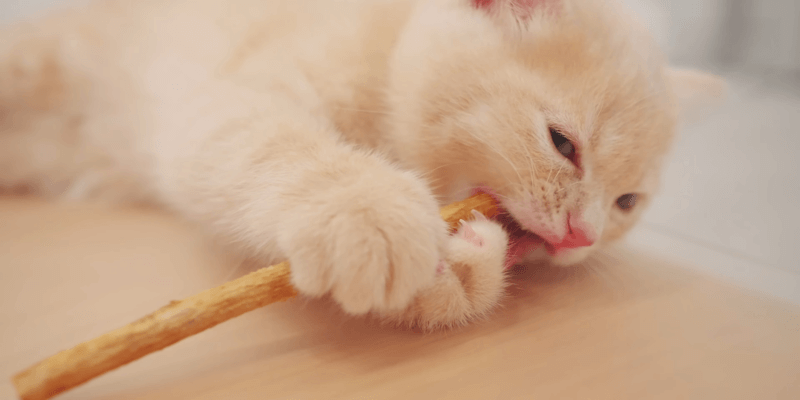
How to Help Cats With Joint Pain
Helping cats with joint pain involves a combination of providing supportive care and implementing lifestyle adjustments. Here are some ways you can help alleviate joint pain in your cat:
- Exercise and Physical Therapy: Encourage low-impact sports and mild exercise to maintain joint flexibility and build supporting muscle. Engage your cat in interactive play sessions with toys that don’t put excessive strain on their joints. Physical therapy techniques, such as controlled movements or stretching exercises, may also be recommended by your veterinarian.
- Warmth and Comfort: Provide warmth to soothe your cat’s joints. Use heated pads, blankets, or beds designed for cats to offer comfort and alleviate stiffness.
- Diet and Nutrition: Ensure your cat’s diet includes nutrients that support joint health. Consult with your veterinarian to select a balanced cat food that contains essential fatty acids (such as omega-3) and antioxidants, which can help reduce inflammation.
- Regular Veterinary Check-ups: Schedule regular check-ups with your veterinarian to monitor your cat’s joint health and make any necessary adjustments to their treatment plan. Regular check-ups allow for early detection of any changes or progression of joint issues.
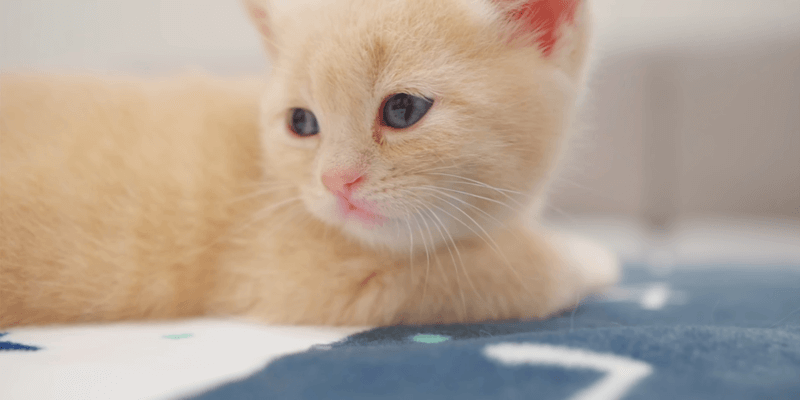
Conclusion
CBD for cats’ joint pain has shown promise in providing relief for cats with joint pain. Due to its anti-inflammatory qualities and interactions with the endocannabinoid system, it may provide advantages. There needs to be additional research to completely understand how well it works for cats, but many cat owners have claimed success. It’s crucial to speak with a vet to decide the best course of action for your cat’s unique requirements and to make sure that CBD is being used safely and appropriately.
I am Nelson Cooper, I pursue my passion for writing and my belief is that cats love humans. I enjoy traveling and have a deep appreciation for the beauty of nature, as well as a soft spot for animals, particularly cats.

